Writing Supernatural Stories
One of the books that had the greatest effect on my life was C. S. Lewis’s The Great Divorce, as I have mentioned in this space before. In many ways the effect this little book has had upon me is surprising because it is most nearly “supernatural fiction.” And my reaction to supernatural fiction? It’s not my favorite thing. And that’s putting it mildly.
Then why did I take so strongly to The Great Divorce? Why do I still claim it as one of the top books I love?
I think the answer to that question is closely linked to another one: why don’t I like supernatural fiction?
The answer to that question is fairly straightforward. I believe in the supernatural—that it is as real as this physical world is though we can not test it with our physical senses. But I stake my life on the supernatural because the Bible has revealed this non-physical world to us.
Elijah saw a supernatural army that his servant could not see. Jesus referred to the legion of angels He could call on at His crucifixion if He had chosen to do so. Samson’s mother discussed his birth with an angel. Abraham and Sarah entertained angels more than once. Jesus called out the demons from the man living among the graves. Paul cast out the demon inhabiting the life of a girl who used to predict the future.
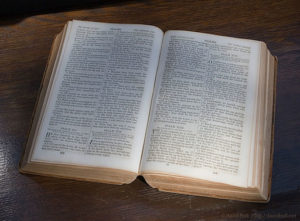 These were real encounters, ones we know about because the Bible records them. It also records Ezekiel’s vision of God on His throne, and an eerily similar one by John in Revelation. The language in those is hard to understand as literal, what with white garments and fire and gleaming bronze and wheels and eyes all around them and more.
These were real encounters, ones we know about because the Bible records them. It also records Ezekiel’s vision of God on His throne, and an eerily similar one by John in Revelation. The language in those is hard to understand as literal, what with white garments and fire and gleaming bronze and wheels and eyes all around them and more.
Those events solidify the idea that the supernatural is real, however, but it also introduces the idea that it’s a bit foreign to what we know and what we can understand.
So why, I wonder, do writers take on the supernatural in fiction. If it is true and it is beyond our ability to understand, what can a story about the supernatural accomplish?
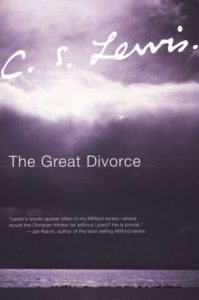 C. S. Lewis’s The Great Divorce did one main thing for me: it convinced me that the supernatural is true. He did so, not by fictionalizing the Bible when it speaks of heaven, or of hell, for that matter. Rather, he took a simple truth—eternity is what lasts; this earth is temporal—and he showed this fact in his story.
C. S. Lewis’s The Great Divorce did one main thing for me: it convinced me that the supernatural is true. He did so, not by fictionalizing the Bible when it speaks of heaven, or of hell, for that matter. Rather, he took a simple truth—eternity is what lasts; this earth is temporal—and he showed this fact in his story.
I was never in doubt about what Lewis was saying. I did not conclude that he thought heaven was just like the place he described (in fact, he left the precise details of heaven unexplored, but he gave description of the terrain leading to heaven.)
And yet today, in the era of story, many authors, believers and unbelievers alike, have taken up the idea of writing about the supernatural. Some bring angels to earth and some take humans to hell.
Those stories trouble me. Yes, I do believe angels can take on human form as they did in the Old Testament. But I think there’s a need to handle them in a way that is consistent with the Bible. Sure, we don’t know a lot, so some speculation would seem to be necessary. But none of it, I believe, should contradict the Bible. A few authors have that as their foundational principle, too, and those stories actually accomplish something akin to Lewis’s story.
Others, however, seem to operate on the idea that speculation can take the story away from revealed Biblical truth.
The problem I have is simple: won’t readers look at those stories in the same way they do ones about vampires or werewolves or zombies? Won’t they think of angels and demons as simply fabrications of the author?
The thing is, demons are real, angels are real, heaven and hell are real. If a story makes them seem like make-believe, isn’t it doing the opposite of what Lewis did in The Great Divorce?
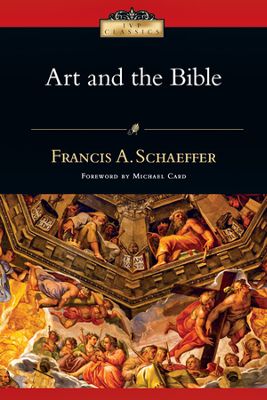 And is that OK? Is it OK to lead people to conclude that what is real, is instead pretend?
And is that OK? Is it OK to lead people to conclude that what is real, is instead pretend?
I’m fully aware that there are writers who have a different view. I mean, the number of stories about the supernatural seems to grow. Why, I wonder? Why do writers write these stories? What do they want to accomplish through them? Why do readers read them? I mean, I assume there is a significant audience since so many stories continue to appear.
I realize that Frank Peretti’s This Present Darkness and Piercing the Darkness may have opened the door to the genre. But his stories seemed to aim at the same thing Lewis’s The Great Divorce did—he wanted to show that the supernatural is real.
Can stories that wildly speculate to the point that there is little resemblance to what the Bible says about supernatural entities, accomplish the same thing? And if not, then what do they accomplish?
One last question? Is it OK to use real supernatural beings in a fictitious way in order to create an entertaining story? I guess that would be sort of like creating an alternate history. So instead of taking the premise, What if JFK had not been assassinated, or What if Judas accepted Christ at the end of his life, the question is, what if a person can travel to hell, or some such thing that seems clearly opposed to reality.
I admit, I’m conflicted here. I’m interested in what others think about this subject.
Please feel free to add your comments as well.
































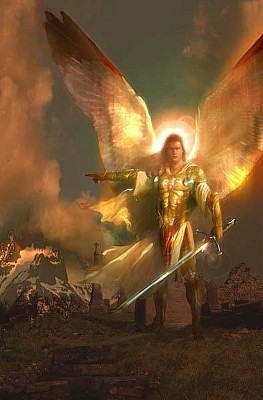




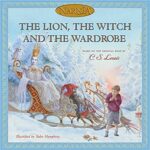


I chose the first option, though my stance is a bit more complicated than that. Part of it depends on what spiritual entities we are discussing. One time, for instance, I was looking up some stuff about the Fate series since I wondered if one of the characters was supposed to be Goliath. I loved the idea of them including Goliath in the Berserker class(unfortunately I don’t think Goliath is a char in this series thus far) But, it turns out David is a character in one of the other, lesser known versions of the Fate series. I had mixed feelings about this. It was vaguely interesting and I thought it might increase people’s interest in the Bible. At the same time, the Fate series is anime, which is a product of a culture that tends not to understand the Bible and may not depict David as he should be. I don’t know that they’d truly understand how to depict someone that tries to follow God, and as you pointed out, sometimes depicting spiritual things in a story can make people stop believing in them
It’s kind of like that with spiritual things for me in fiction. Seeing a demon written in fiction worries me less than when someone tries to write God, Jesus, or angels.
That said, I do still love stories with demons and angels in them, and many of my stories have them in some capacity or other. Like you said, authors should try and make them somewhat consistent with what the Bible says about them. But since there is very little detail about what angels and demons are actually like, we are left with many assumptions, and each author would probably have a vastly different interpretation.
There are also other considerations, like the story world the angels/demons are being written into. A different world means different circumstances, and thus different ways spiritual beings will behave in the story world.
Angels/demons are also different creatures than humans, so in many cases care should be taken to show this. With my demon and angel chars, for instance, I’ve been doing a lot to give them a vastly different psychology than us. On the surface, my angel chars may act the same as us, especially if they were raised by humans, but as the characters interact with the angel further and actually start to unpack the mental processes behind their behavior, they are clearly very different.
Autumn, I think the whole subject is a bit complicated. Part of it goes to motive, to what we want readers to know about the supernatural, our ideas about good fiction, about Biblical fiction, and more.
I’m intrigued by your development of a different psychology for angels. I think this has promise. The first angel book I remember reading after becoming a writer depicted the angels as just like humans. Some were lazy and disobedient (and these were angels), some self-sacrificing and good. They didn’t really have any physical description, but the mindset, the thought life we lived in, was really no different from humans. And that bothered me.
I’m still bothered by demons that are written in ways that contradict the Bible or that induce people to think of them like just another scary monster among a family of monsters. There’s just something about reality that I think needs to be preserved in historical fiction but also in Biblical fiction and especially in supernatural fiction.
Becky
I put ‘mixed’ in the poll because i don’t have a particular opinion on “supernatural fiction” (honestly not quite sure how to define that genre), and there are multiple factors in whether i think a portrayal is a good thing or not.
One of my favorite web comics, “Digger”, has demons that don’t line up with the Biblical idea of them. It also has humans, talking animals, a man with the head of a deer, a reference to an evil goddess created by the corruption of a Christian-like religion, and a statue of Ganesh that sometimes *is* Ganesh. The inclusion of Ganesh and the portrayal of demons don’t bother me, in part because the story doesn’t give the impression that how things work in Digger’s world is the same as ours: there may be a god with the head of an elephant named Ganesh, but there are bandersnatches, talking animals, and vampire vegetables, too. The other reason is because what the narrative treats as important isn’t the nature of demons or the existence of Ganesh, but things that i can agree with. On the other hand, i’ve also read books with much more Christian portrayals of demons and/or angels that i didn’t like, not because they were particularly unbiblical but because the narrative was weak and the characters were uninteresting.
Your question of “what if people start thinking of angels and demons like werewolves and vampires” sets my teeth on edge a bit. It’s certainly true that people have changed their minds because of what they’ve read in fiction, but not because “that book had an angel in it and it was fiction so clearly angels aren’t real”, it was because the book’s narrative suggested, implied, or outright stated that angels aren’t actually real, and the person’s belief system was open to being changed.
I agree, Sarah. The existence of angelic characters in stories is not what causes people to stop believing in them. I mean, there are human characters in nearly every story! And the stories that have talking animals don’t cause us to believe talking animals exist. Rather, it is when there’s a sense that angels are just like all the other pretend elements. I think it’s kind of tricky to write supernatural characters well.
Becky
That webcomic sounds pretty Terry-Pratchett-like and I am down with it.
It occurs to me that we haven’t really talked about Discworld around here and that seems like an oversight.
I definitely recommend it. The Pratchett comparison is interesting; it’s certainly more Pratchett-y than i initially thought, now that i’ve considered it, but the tone is much more solemn than Discworld. Not that Discworld couldn’t take things seriously, but there’s a much higher ratio of comedic characters and situations than in Digger.
To a large degree, I think I have a double standard when it comes to these kinds of stories.
If the writer is a Christian, my expectation is that their portrayal of the supernatural should be biblical. That may not mean i’ll agree with every part of their portrayal, such as with Peretti, but some room for such disagreement is fine.
If the writer or storyteller is not Christian, I can be more accepting of some things I might not much agree with otherwise. An example of that might be Spirited Away, where most of the characters are some kind of spirit. Obviously, it’s not a view of spirits that’s biblical, but right or wrong I’m fine with it for that story.
Maybe another important factor is how realistic the story is trying to be, if so far as I can tell the author is claiming to be portraying spiritual reality with how the supernatural is portrayed and dealt with in the story. I’ve watched shows like The X-Files and a few episodes of Supernatural, and had little problem with them, because they didn’t seem to be very realistic.